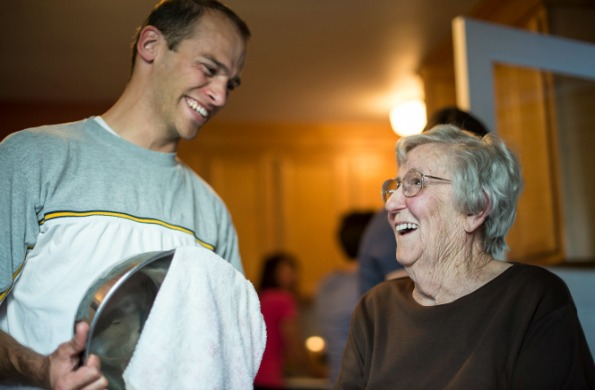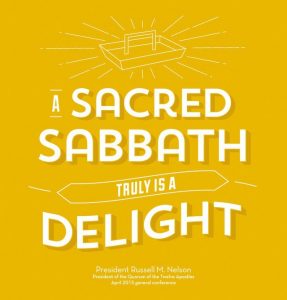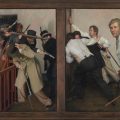Most people, at least at some point in their lives, wish they could make a difference in the world in which they live. Many Latter-day Saints wish they could convert hundreds at a time, as did a few of the earliest missionaries, or bring the world to live by gospel standards. Some may feel their small efforts can’t matter all that much, but history has shown one person can change everything. Spiritual heroism doesn’t have to be big and important. It can be small and personal.
 Errol Bennett’s story has often been told among the Saints. He was a top soccer player in Tahiti in the 1970s, one of the best Tahiti has ever known. However, when he began to consider the possibility of becoming a member of The Church of Jesus Christ of Latter-day Saints, soccer became the unexpected challenge in his conversion. Tahiti’s soccer program was not professional, and so players held outside jobs and games were played on Sunday afternoons. This was a long-standing tradition, a natural part of the lives of soccer players and fans.
Errol Bennett’s story has often been told among the Saints. He was a top soccer player in Tahiti in the 1970s, one of the best Tahiti has ever known. However, when he began to consider the possibility of becoming a member of The Church of Jesus Christ of Latter-day Saints, soccer became the unexpected challenge in his conversion. Tahiti’s soccer program was not professional, and so players held outside jobs and games were played on Sunday afternoons. This was a long-standing tradition, a natural part of the lives of soccer players and fans.
Whatever feelings the people of Tahiti might have had about Latter-day Saints were eclipsed by their feelings about soccer. Bennett made it clear that if he became a member, he would not play soccer on Sundays.
The scriptures teach that God created the world in six days and then rested on the seventh. Likewise, Latter-day Saints also rest from worldly pursuits on the Sabbath. The Sabbath day—not just the two hours of church attendance, but all day—is spent honoring and serving God. It is a time to draw closer to Him, to worship, to fill the spiritual needs of others. It is not a time for shopping, parties, or working (if it can be avoided). While each person must decide for himself or herself what to do about this commandment, Bennett knew that if he converted, he would not play soccer on Sundays.
His father was angry and upset, even threatening to disown him. On advice from his religious leaders, Bennett went to his father to restore the relationship. The father had already come to the same conclusion and they resolved the problem. However, family and friends continued to pressure Bennett to forego baptism and conversion. The president of the league even contacted the stake president (a leader over a group of congregations) to ask that Bennett be given some kind of special dispensation so it wouldn’t be a sin for Bennett to play on Sundays. Since the Church does not give people permission to disobey the commandments, the stake president politely explained that the choice was entirely Bennett’s. Each person is responsible for his own choices.
Bennett held strong. Having a testimony of the Church, he went ahead with his baptism and resolved to resign from soccer for good. However, the league unexpectedly voted to move all game play to weeknights. This created only a mild uproar, due to Bennett’s popularity. Because Bennett held firm, he was able to end Sabbath gameplay. Even though not all players decided to go to church after this, many commented on how much they appreciated having Sundays for family time.
Several other islands in the area also agreed to end Sunday play as a result of Tahiti’s decision to do so. One player, with the courage to stand his ground, ended one aspect of Sabbath breaking.
It’s true, of course, that most of us would not have been able to get these results. However, we all have areas of influence, and we can make changes. They might not be nationwide, but changing even a small piece of our personal world can have the often-mentioned ripple effect.
Suppose, for instance, you longed for a society in which everyone could read. Some people would have the personality, time, and resources to create a program which would bring literacy to thousands. Most of us would not. Should we do nothing because we can’t help thousands? Of course not!
In our desire to improve the nation’s literacy and with a recognition of our limitations, we could look to the Savior for an example. He did not heal every person in the world while He lived on the earth. He healed those He had access to at the time. He taught only those He had access to. However, those who were healed or who heard and accepted His teachings went out into the world and shared that testimony with a few other people. Those converts also spread the word. Today, a religion that nearly two centuries ago had only a handful of followers has followers in countless numbers worldwide, even though Jesus Himself only taught a few people.
So we might decide to volunteer at a literacy center and teach three people to read. Three might not seem like many when they look at the large numbers of people who cannot read. However, those who are parents will go home and read to their children, which will help their children to become literate, breaking a cycle of illiteracy. Even if those we teach do not influence others, our efforts are not wasted, because we used them to help end illiteracy for three people. Other people will also work on the literacy effort and the combined efforts will lead to a significant reduction in illiteracy.
 This principle can be applied to any good thing we wish to do. If we want to end hunger, we feed three people. If we want to improve morality, we train our own children to be moral. If we want the gospel to spread, we share it with our friends, who may go on to share it with their friends. Like the healings Jesus did, our small, individual efforts will unite with the individual efforts of others, and one person at a time, the world can be converted and improved. Whatever our goals, we don’t need to aim for millions alone. We can start with a single person in small, unsung acts of spiritual heroism.
This principle can be applied to any good thing we wish to do. If we want to end hunger, we feed three people. If we want to improve morality, we train our own children to be moral. If we want the gospel to spread, we share it with our friends, who may go on to share it with their friends. Like the healings Jesus did, our small, individual efforts will unite with the individual efforts of others, and one person at a time, the world can be converted and improved. Whatever our goals, we don’t need to aim for millions alone. We can start with a single person in small, unsung acts of spiritual heroism.
This article was originally published in August 2009. Minor changes have been made. To read more of Terrie’s work, click here.
The late Terrie Lynn Bittner—beloved wife, mother, grandmother, and friend—was the author of two homeschooling books and numerous articles, including several that appeared in Latter-day Saint magazines. She became a member of the Church at the age of 17 and began sharing her faith online in 1992.







